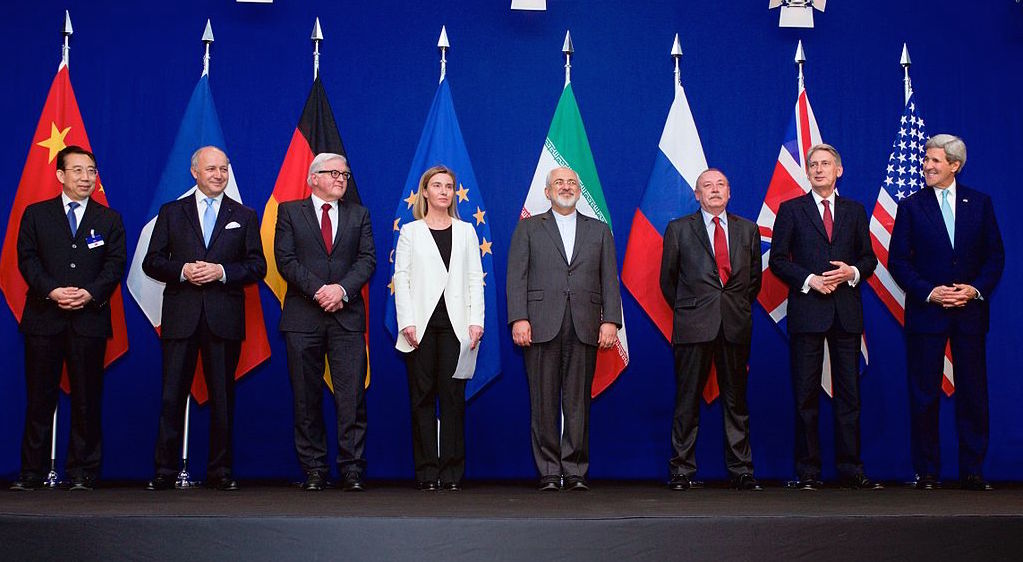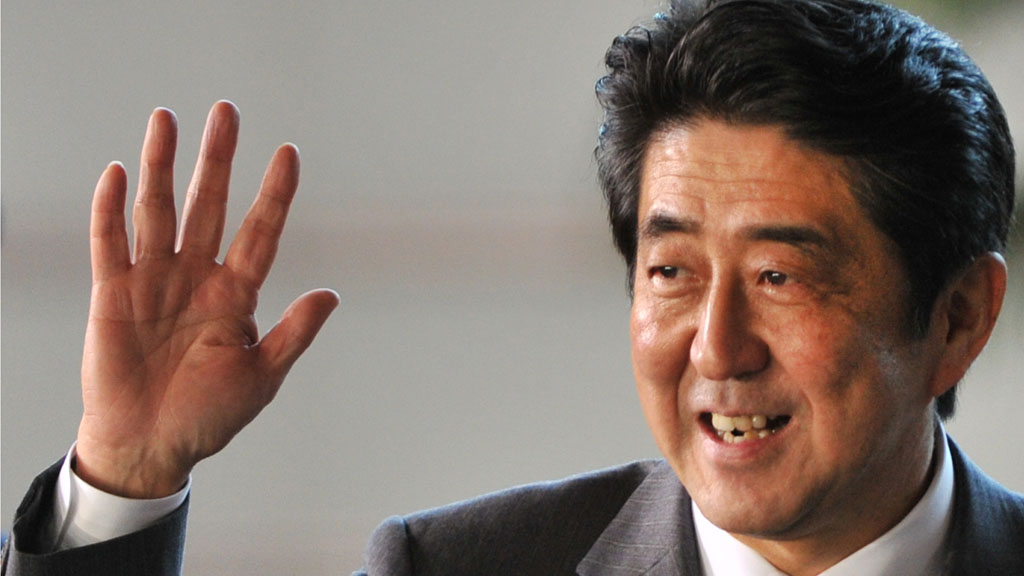Deficits, cutbacks, fiscal cliffs, and austerity measures – just a few of the many loaded terms describing the everyday fiscal reality since the crash of 2007-2008. Surprisingly, despite the ongoing global financial and economic crisis, armaments purchases have seen a net increase not only among NATO members such as the US, Canada, and the United Kingdom, but also for former adversaries.
With added pressure for national fiscal consolidation, nothing, not even the pensions of citizens of the wealthiest countries in the Alliance are considered sacred anymore. It would then be logical to assume that defence spending would at least flat-line. Not so. Interestingly, and somewhat against the logic of the present-day fiscal reality, the armaments sector appears more and more as the strongest and most consistent growth industry in troubled Western economies.
American, Canadian, British, and continental European defence industries are experiencing a fortuitous confluence of economic and political developments worldwide – directly and indirectly triggered by financial and economic crises.
The onset of the 2007-2008 global financial crisis squeezed state budgets for defence spending. Those same fiscal pressures which further exacerbated risk premiums perceived by actors on stock, credit and bond markets have been translated to individual law and policy-makers who continue to react to economic conditions either through sector-specific stimulus, fiscal consolidation measures, or a complex combination of the two.
Stimulus: Seaspan Marine, Irving Shipbuilders, and Lockheed Martin
While the crisis has not hit Canada in the way it has heavily indebted Eurozone economies, the country’s policy has been characterized by plans for high-profile defence spending. Canada’s National Shipbuilding Strategy designed in part to reinforce the country’s Arctic presence and the F-35 Joint Strike Fighter deal with the US are both examples of substantial outlay in an age of an increasingly elusive balanced federal budget.
Above all, the Harper Government’s vision for the newly “Royal” Canadian armed forces is an example of policy in action, a conscious decision by the government to invest in an otherwise underfunded and relatively neglected pillar of the Canadian state, despite the implicit continental security guarantee of the US.
The Canadian case is a boon for Vancouver’s Seaspan Marine and Halifax’s Irving Shipbuilders, but also for the US’s Lockheed Martin.
Fiscal Consolidation: Frigates and Submarines to Greece
Austerity measures in the EU are a lightning rod for sharp policy criticism, with a prevailing impression that defence spending is actually flat-lining across Europe. When the Papandreou Government slashed spending to avoid default in 2009, and later accepted an IMF/EU-led bailout conditional on the country’s concerted fiscal consolidation, few expected anything but a flat-lining of Greek defence spending. In fact, Greek defence outlays have since experienced the opposite effect, with the country purchasing two German Type 214 submarines, both of which turned out to be technically defective, and now Greece waits for a resolution to a row between France’s state-owned DCNS and Germany’s ThyssenKrupp both of which are bidding against one another for a contract for six frigates (France is offering Fremm-type frigates to the Greeks for free, with the first payments to be made in the distant future). Also on the line are fifteen search-and-rescue helicopters, and up to forty fighters (France’s Rafale-type is an option).
What tops off the Greek tragedy is that the country’s expenditure on defence increased from 6.24 billion euros in 2007 (in the run-up to the financial crisis) to 7.1 billion in 2010 (when the sovereign debt crisis in the Eurozone was already in full swing). This paradoxical relationship between fiscal consolidation measures, mediated by conditional external rescue packages, with increased defence spending reveals more about the business climate for arms sales in spite of the crisis than about the logic of procurement when social safety nets are buckling under the stress of near-unserviceable debt obligations.
From about 1946 up to the present day, Greek defence spending has been around 7% of GDP when other European countries spent around 2.2%. Some argue that the EU should guarantee Greek territorial sovereignty, especially its borders with Turkey, a NATO ally, for the time it takes Greece to regain its ability to make its debt payments. Until this happens Greece will remain an example of a country where austerity does not extend to defence, and where opportunities remain for defence industries.
Germany’s Ferrostaal, ThyssenKrupp, and Howaldtswerke-Deutsche Werft, along with France’s DCNS/Armaris and Dassault Aviation are unlikely to see a fall in sales in the near future.
Hybridization of Stimulus and Fiscal Consolidation: The US/UK and the Middle-East
The US, by virtue of having the world’s reserve currency, is able to engage in discretionary stimulus and department-specific spending cuts while at the same time running up enormous debts and deficits. The case of the UK is slightly different, but its non-Eurozone status and relatively strong economy has so far allowed it to follow a path of targeted stimulus and at the same time to rein in public spending. However, what is interesting about the two countries is the vibrancy of their defence industries and how well they are doing in spite of the crisis.
Congressional Research Service reports of US arms sales indicate record levels, the highest in history actually, despite the condition of the global economy. Gulf Arab States now figure as the most significant customers. When by late 2010 an entire generation of young adults in the Middle East realized that hopes for a decent life became even more inaccessible a slew of quasi-democratic regimes faced a cessation of Western arms sales in light of the uprisings. Problems arise, however, when public protests stop and the arms sales resume, giving the regimes an opportunity to identify and address security needs. This is the case of Bahrain, and US resumption of arms sales after the ruling family cracked down on the Shia underclass after protests appeared to have ended.
In early November of 2012, Prime Minister David Cameron defended BAE System’s sales of weapons to the Middle-East as “legitimate”. The countries in question, the UAE, Oman and Saudi Arabia have each had little-to-no incidence of public protest, but have intervened in countries which have – Saudi Arabia’s air strikes in troubled Yemen are a case in point. The success or failure of domestic defence industries in the global race, such as the UK’s BAE Systems, are now more than ever a state affair. Even if arms exports to those EU states which have avoided the debt crisis are flat-lining, the repositioning of domestic defence industries to promote growth is a clear concern for American and European leaders. In the case of the UK, arms export figures are regularly reviewed by the Cameron Government, providing defence industries with a powerful far-reaching lobby at their disposal when exploring growth options in markets beyond the traditional landscape.
Although the 2007-2008 shocks may have disproportionately affected the most financially interconnected Western economies in Europe and North America, no one country has remained untouched. Nevertheless, as some may know, the ancient Greek word for “crisis” also translates into opportunity, thus it is not surprising that the crisis would yield opportunities for industries geared to dealing with the fallout of crisis situations.
When considering all of this variance across these countries, defence industries worldwide must wonder where to take point. What is the determining factor in arms sales, considering the fiscal situation and policy of governments? The emerging picture is that there is a very good reason why the defence sector is the only growth industry in a time of economic turmoil. Opportunities exist in stimulus measures, conditions accompanying fiscal consolidation and rescue, and in the economic fallout, which had boiled over in parts of the world.
Defence industries in NATO countries not the only beneficiaries of the crisis: The Case of Syria and Russia
Since the start of the civil war in Syria in 2011 and the banning of arms sales to Syria by most Western, arms-dealing nations, the Russian Federation has sent mixed signals on whether it would continue to honour its existing arms contracts. At this point in time, arms sales to Syria are without a doubt morally reprehensible, but remain legal. Although the government of President Putin can be dismissed as cruelly realist in this respect – especially in the use of its Security Council veto, its geopolitical power-play in the region and by allowing the Russian armaments industry to cash in on the situation – criticism is easily countered with the many examples of Western hypocrisy.
Moralising aside, well-positioned defence industries both within NATO countries and beyond stand to benefit tremendously from the fallout of the crisis. Defence companies seeking to develop forecasts and identify growth areas need to understand not only whether a given country’s government is focussing on a path of stimulus, fiscal consolidation, or a mix of the two, but also how a country’s fiscal situation will inform its interaction with international actors under emergency conditions and fiscal rescue. Albeit ironic, the cases of Canada, the US, UK, France, Germany, Greece and the Middle East demonstrate that even in an age of extreme localized austerity, well-positioned defence industries within NATO countries and beyond are more than able to thrive.




